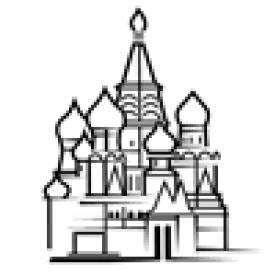In a 2005 Kremlin speech, Russian President Vladimir Putin, characterized the collapse of the Soviet Union as the “greatest geopolitical catastrophe of the Twentieth Century.” He elaborated on his focus. “As for the Russian nation, it became a genuine drama. Tens of millions of our co-citizens and co-patriots found themselves outside Russian territory. Moreover, the epidemic of disintegration infected Russia itself.”
The near-decade between the Soviet period and the rise of Putin was a time of upheaval in Russia. Gone was the ruling party. Gone was the structure that bound Russia together with Ukraine and thirteen other Soviet Republics. Gone was the Warsaw Pact, which offered Russia geographic and political insulation from Western invasion. Gone was the cradle-to-grave social safety net. Life expectancy sharply declined. Rampant was hyper-inflation, endemic corruption, the rise of the Russian mafia, domestic terrorism, and the general breakdown of social order. The Yeltsin years were unhappy in Russia, however pleased people may have been to see the Communist Party out of the way.
At first welcomed, Western advisers and their patrons in the Yeltsin government were then pilloried. In the chaos, it was easy to believe the worst. Wasn’t it Americans who promoted economic “shock therapy?” Wasn’t America glad to deal with an impoverished and impotent Russia, rather than the rival from the Cold War. Wasn’t Russian debility in America’s national interest?
As the 1990s progressed, these attitudes hardened. In Russia, a zero-sum logic developed. The country was weak and foreigners preferred things that way. For Russians, NATO expansion was a vivid example of the West taking advantage of weakness, in a fashion impossible during the Soviet era.
When Putin spoke about geopolitical catastrophe, he was echoing sentiments already deeply felt in Russia. His was not a call to recreate the entire Soviet structure, including absorption of large Islamic populations, much less a desire to restore Communism. Instead, he decried the upheaval that followed disintegration. Putin spoke at a time of the Rose Revolution in Georgia and the Orange Revolution in Ukraine. In Moscow, these events were not seen as celebrations of democracy. They were seen as Western-inspired incursions into Russia’s space. Russian objections were overridden. Putin’s speech, lamenting the loss of national prestige and influence, channeled his people.
Soon, Putin started to reorient things to Russia’s preferences. He began with his 2008 invasion of Georgia. He took another major step through his destabilization of Ukraine. Very likely, he is not done.
There is a substantial history in his country of pushing back against powers who Russians fear would exploit national weakness. It happened early in the Seventeenth Century, when Poles and Swedes took advantage of a dynastic collapse. Trying to dominate, they put bogus claimants on the Russian throne. The Time of Troubles, as it is known, ended in 1613, when boyars and peasants forcibly expelled the foreigners and made Mikhail Romanov their new tsar.
Josef Stalin also spoke about redressing the cataclysm of weakness. In 1934, before Party cadres, he noted:
“The history of old Russia was that she was ceaselessly beaten for her backwardness. She was beaten by the Mongol Khans, she was beaten by the Turkish beys, she was beaten by the Swedish feudal lords, she was beaten by the Polish-Lithuanian Pans, she was beaten by Anglo-French capitalists, she was beaten by Japanese barons, she was beaten by all – for her backwardness. We are fifty or a hundred years behind the advanced countries. We must make good this lag in years. Either we do it or they will crush us.”
Putin wants neighboring states that pursue policies subordinate to Moscow and that cannot be used to destabilize Russia itself. He calculates that these are core interests for Russia and peripheral matters for the West. He judges that the correlation of forces in the region works in his favor. He believes the West will fill whatever vacuum Russian weakness or irresolution creates. In asserting Russian hegemony over the near abroad, he seems ready to call the Western bluff.



 i
i


